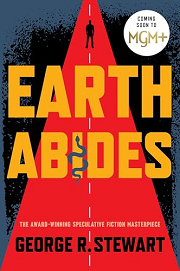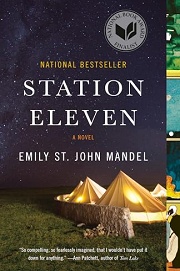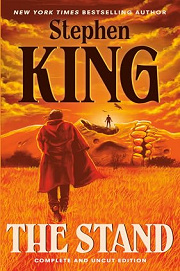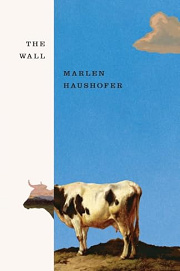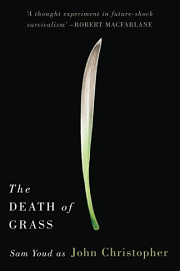Share your thoughts in a quick Shelf Talk!
Earth Abides by George R. Stewart
After a devastating plague, a solitary survivor watches a silent world begin again. Spare and visionary, Earth Abides traces the slow pulse of civilization’s return, finding dignity and danger in the simple acts that keep humanity alive.
Have you read this book? Share what you liked (or didn’t), and we’ll use your answers to recommend your next favorite read!
Love Earth Abides but not sure what to read next?
These picks are popular with readers who enjoyed this book. Complete a quick Shelf Talk to get recommendations made just for you! Warning: possible spoilers for Earth Abides below.
In Earth Abides, did you enjoy ...
... the quiet, day-to-day rebuilding of community after a global plague?
Station Eleven by Emily St. John Mandel
If the parts where Ish and Em patiently knit a small tribe from scavenged routines—teaching by the campfire, passing around books, and letting a simple hammer become a symbol—stuck with you, you'll love how Station Eleven follows Kirsten Raymonde and the Traveling Symphony as they carry art and memory along ruined highways. The Museum of Civilization at the Severn City Airport echoes Ish’s library runs and his hope that what we save matters as much as what we survive.
... meditations on what knowledge and belief are worth preserving after collapse?
A Canticle for Leibowitz by Walter M. Miller, Jr.
If Ish’s lifelong struggle—hoarding books, trying to restart schooling for the children, and watching his tribe drift toward oral lore while the hammer becomes a relic—made you mull over what should endure, A Canticle for Leibowitz will resonate. Monks safeguarding blueprints-as-scripture mirror Ish’s preservationist instinct, while the novel’s centuries-spanning cycles of loss and renewal deepen the same questions that haunted Ish’s attempts at rebuilding meaning.
... a sweeping chronicle of communities rising and falling in the long wake of a plague?
The Stand by Stephen King
If you appreciated how Earth Abides widens from Ish’s lonely foraging to a lifetime panorama of a new tribal order, The Stand gives that breadth on a grand scale. Watching Stu Redman, Fran Goldsmith, and others pull together the Boulder Free Zone evokes the same thorny choices Ish faces about law, leadership, and what kind of society to rebuild—only here across continents, factions, and years of hard-won cohesion.
... the meditative, day-by-day rhythms of solitary survival?
The Wall by Marlen Haushofer
If you were absorbed by Ish’s quiet routines—taking inventory, learning new tools, charting animal populations, and surrendering to the seasons—The Wall offers that same intimate, unhurried attention to survival. Its unnamed narrator, cut off by an invisible barrier, chronicles woodcutting, planting, and caring for her dog and cow with the same contemplative patience that made Ish’s early wanderings so compelling.
... the stark ecological chain reactions that reshape human society?
The Death Of Grass by John Christopher
If Ish’s observations of nature reclaiming the streets—shifting wildlife, failing infrastructure, and the land’s quiet indifference—were part of the appeal, The Death of Grass sharpens that lens. As a plague wipes out the world’s grasses, John Custance’s journey forces brutal choices that echo Ish’s sober calculus about what can be saved and what must be abandoned when the environment itself turns the rules upside down.
Unlock your personalized book recommendations! Just take a quick Shelf Talk for Earth Abides by George R. Stewart. It’s only a few questions and takes less than a minute.
